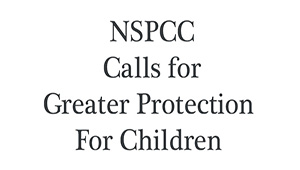Dear Editor,
re FGM.
 Christmas is usually a happy time for children and families. However, for a small number of girls in our society the holidays present a time of vulnerability and greater risk of harm with the threat of being taken abroad to undergo female genital mutilation. (FGM).
Christmas is usually a happy time for children and families. However, for a small number of girls in our society the holidays present a time of vulnerability and greater risk of harm with the threat of being taken abroad to undergo female genital mutilation. (FGM).
FGM is a term given to all procedures that involve partial or total removal of the external female genitals or other injury to female genital organs. It is practiced in some parts of the world but it is without any medical basis and can cause long lasting damage to physical and mental health. The procedure is dangerous, illegal and a serious form of child abuse. Unfortunately, it is an issue for some children across the UK and more needs to be done to stamp it out.
The NSPCC understands that some families who subject their children to FGM may do so because of cultural norms or that they believe it will help their child improve their life. It is a deeply entrenched issue and the secrecy that surrounds FGM makes it difficult to identify those at risk.
In Northern Ireland, some progress has been made by the Safeguarding Board of Northern Ireland, to help reduce the risk of FGM to girls. However, awareness raising is key to the protection of children and young people.
Schools, nurseries and youth organisations are well placed to identify girls at risk. We urge everyone working with children to be vigilant and especially if they hear about planned foreign travel to take part in “special” ceremonies, or an extended break from school this Christmas.
The NSPCC provides a specialised FGM helpline which is available in Northern Ireland. Since it was launched across the UK in 2013, the helpline has been contacted more than 1,500 times with around a third of concerns serious enough to be referred to police or social services.
For far too long, FGM has been cloaked in secrecy so we need more people in communities to join forces to ensure this dangerous practice is ended and no child is put through this needless, traumatic procedure. This is child abuse, it is against the law and it has no place in any society.
We would encourage anyone who has concerns about a child and FGM to speak to their GP, health visitor, school nurse, teacher or for advice and support they can contact our anonymous and free FGM helpline on 0800 028 3550 so that appropriate action can be taken. More information can be found online at:
Children can call Childline at any time on 0800 1111. If you suspect a child is in immediate danger, dial the emergency services on 999.
Yours sincerely,
Neil Anderson
(Head of the NSPCC in Northern Ireland).


























